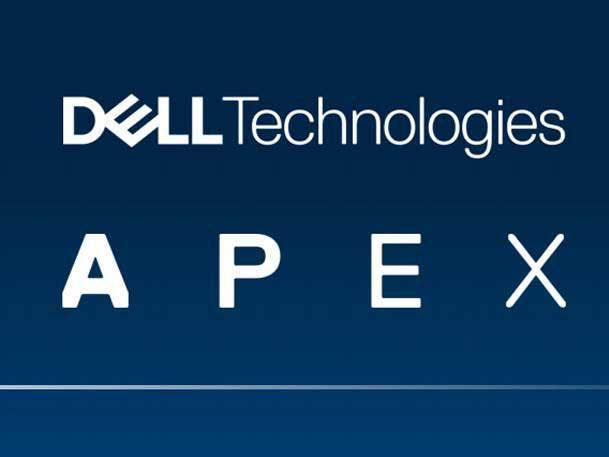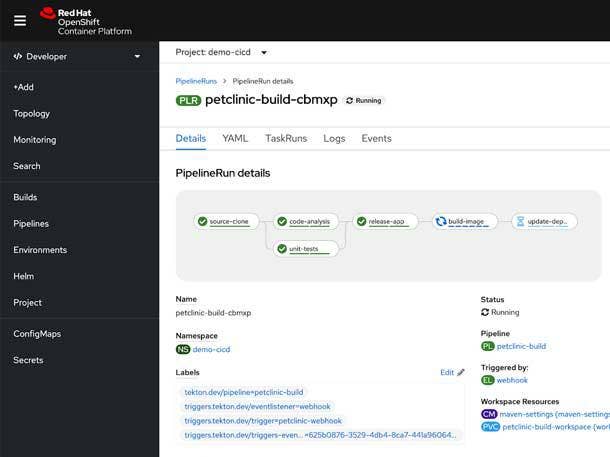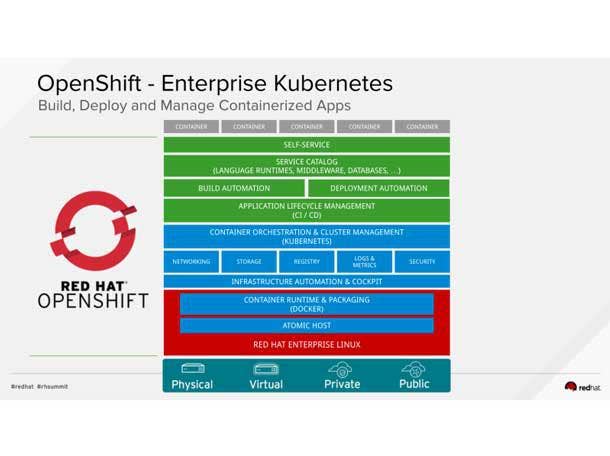Dell’s Expanded Red Hat Collaboration: 5 Things To Know
‘What is exciting about this announcement is that Dell has effectively removed the barriers to entry by providing multiple options for a validated engineered solution,’ says Rick Gouin, chief technology officer at Dell Platinum Partner Winslow Technology Group.

Dell Technologies said its expanded DevOps collaboration with Red Hat has resulted in three products, two aimed at using Dell platforms to manage OpenShift, while the third is a project aimed at simplifying the infrastructure stack for DevOps teams to build upon.
Dell APEX containers for Red Hat OpenShift offers an on-premises cloud experience for developers using Dell-managed container-as-a-service products. Dell’s Validated Platform for Red Hat OpenShift allows skilled IT teams to run their own environments on the PowerFlex platform.
“We’re pleased to see Dell and Red Hat joining forces to ease the complexity of moving to and operating in a multi-hybrid cloud world. We look forward to building on our long-standing, successful collaborations with both companies by co-developing DevOps and cloud-native initiatives that help enterprises reduce technical debt, ramp up organizational agility and accelerate their reinvention on cloud,” Raj Wickramasinghe, lead for Hybrid and Emerging Platforms, Accenture, said in a statement that accompanied Dell’s release.
Ninety percent of global organizations are expected to take advantage of containerized applications by 2027, said Dell, citing Gartner. However, as more companies’ seek to use containers they encounter the complexities of finding the skilled workers to deploy and run those installation, Dell said.
Dell Platinum Partner Winslow Technology Group CTO Rick Gouin said his customers call asking for container options as they look to expand their multi-cloud footprint.
“APEX is a big focus for us here at Winslow Technology Group, and we know it’s a big focus for Dell as well,” he said. “We are always excited when Dell adds a new solution offering to the APEX portfolio. We want to see as many solutions as possible available through the APEX program and console.”
Here are five things you need to know about this partnership.

Dell APEX Containers For Red Hat OpenShift
Satish Iyer, vice-president and general manager of emerging product, said this was designed to organize, run, scale, and manage containers in a virtualized environment.
“The key tenant of this one is it’s a fully managed offering. So it’s based on Dell PowerFlex software defined infrastructure. This is on-prem. Over time we will probably do (co-location) as well. The fundamental goal of this one is allowing our customers to be able to have a native Kubernetes offering where they can basically manage a virtualized container. This is fully managed by Dell. All the way from infrastructure all the way up the Red Hat stack.
The other aspect here is we introduced the concept of customer success as part of the APEX offering last year. This would come with our customer success practice where we will have somebody moderating and helping customer adopt containers.
This is absolutely optimized for on prem workloads. We will have different sizes. To satisfy different workloads.”

Dell Validated Platform For Red Hat OpenShift
This is built on Dell’s PowerFlex platform to let skilled IT shops manage their own Red Hat OpenShift deployments, said Dell Technologies vice president of product management Caitlin Gordon.
“Especially with a lot of the larger enterprises, they already have a lot of the skills in house. And maybe they actually want to keep that as something they’re going to build themselves. At the same time, building these types of environments can get pretty complex both on the infrastructure side and on the software side.
That’s why we have worked really closely with Red Hat to build this brand new Dell validated platform for Red Hat OpenShift.
It’s all about combining infrastructure that’s built for scalability, for enterprise class, mission critical performance. You can meet those SLAs and get incredible latency and throughput for these cloud-native applications, and combining that with the power of what you have with OpenShift.
We built this on our PowerFlex platform. The reason we did that is because of the incredible scalability and agility of that platform itself. It’s fully software-defined storage, deployable in a lot of different ways. Being able to combine that with OpenShift enables you to simplify the infrastructure stack to really have zero compromise on the infrastructure and be able to build on top of that. It’s really about the simplification and streamlining of that.

Dell And Red Hat Co-engineered Hybrid Cloud Solutions And Optional IBM Intelligent Automation Software
Gordon said the two companies are creating automated infrastructure that will use Dell software for full stack integration of Red Hat OpenShift on scalable Dell software-defined storage and compute to deliver cloud flexibility and simplify on-premises operations.
“This is really about how do we allow our customers to go even further with that validated platform? How do we simplify the infrastructure stack so our customers can focus on building on top of that infrastructure, building their applications and really being able to develop once and deploy anywhere?
So it’s really about the simplification of that from a hybrid or multi-cloud environment. What we know very clearly is that one of the things customers love about Red Hat OpenShift is that it gives you that multi-cloud flexibility, which is also a key tenant of what we are building.
Its simplifying that experience for IT so they can better serve the development community, to really increase that velocity. It’s really all about having the common operating model. The more we can simplify and make the infrastructure common the easier it is from an IT perspective.”

The Partner Opportunity
Gordon said in addition to a resale opportunity, this is also an example of the company growing its multi-cloud ecosystem for the benefit of partners.
“There’s a lot of partner opportunity here. What we talked about today is all available to our reseller partner community. I think what we have also seen is just like we have a Dell managed offer here, there’s a lot of service support opportunity in this market.
What we have found is that the more we can help simplify overall the combination of Red Hat OpenShift on Dell infrastructure, really the better our customers are going to be.
So, I think there’s a resale opportunity, as well as many other opportunities out there for our partner community. Also, when you talk about partners, this is just our ecosystem expansion from a multicloud perspective as well.”

What One Partner Is Saying
Dell Platinum Partner Winslow Technology Group CTO Rick Gouin said customers are demanding containerized solutions, but the complexity of the environment can be prohibitive.
“We expect containerized workloads to continue to grow at a rapid pace, and we see significant benefit for customers who adopt. With that said, there is a bit of a learning curve to properly introduce containerization into a legacy environment. What is exciting about this announcement is that Dell has effectively removed the barriers to entry by providing multiple options for a validated engineered solution.
As a Dell-centric solution provider, we strive to fill our portfolio with the tools and parts we need to assemble solutions that exceed customer expectations. Dells new focus on OpenShift in partnership with Red Hat will allow us to participate in more projects and truly provide turnkey container services.
As more and more of our customers adopt these technologies and begin to transition workloads, it‘s important that channel partners aren’t left behind. We feel that these offerings will help us be more competitive, particularly with our forward-looking customers.”